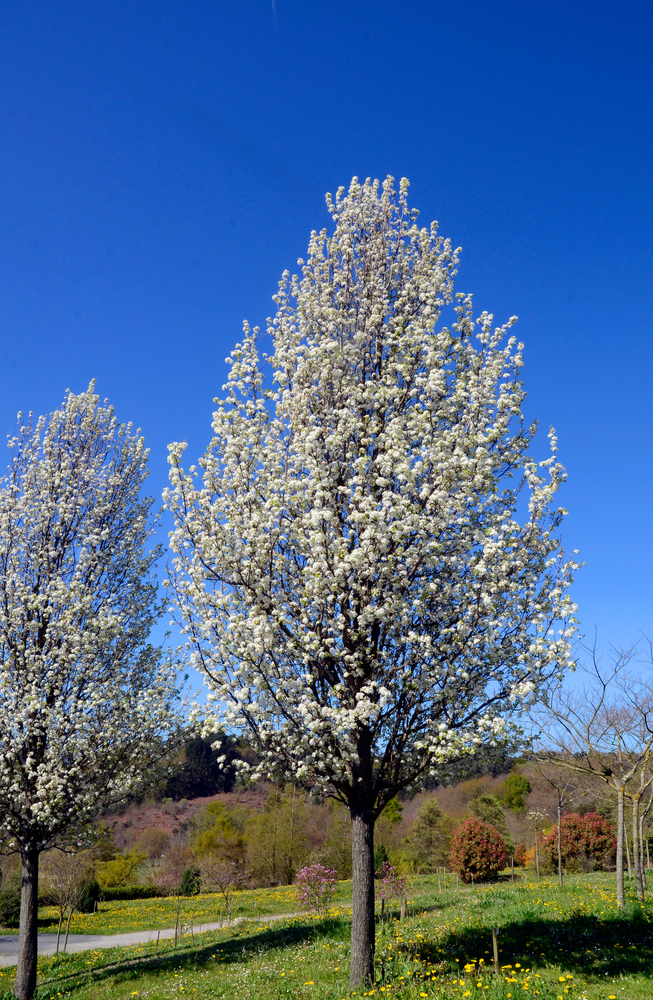Pyrus calleryana ‘Chanticleer’ 45L bag TREE DECIDUOUS
Pyrus is a genus of about 30 species of deciduous trees and shrubs in the Rosaceae family, commonly known as pear trees. Here are some horticultural notes on the genus Pyrus:
Climate and soil requirements: Pear trees prefer well-draining soil and can grow in a wide range of climates, from cool temperate to subtropical.
Light requirements: Pear trees prefer full sun but can tolerate partial shade.
Watering: Pear trees require regular watering, particularly during the growing season. However, overwatering can lead to root rot, so it is important to ensure good drainage.
Fertilization: Pear trees benefit from regular fertilization during the growing season. A balanced fertilizer can be applied every two to four weeks.
Pruning: Pear trees require regular pruning to maintain their shape, promote healthy growth, and improve fruit production. Pruning should be done in late winter or early spring, before new growth appears.
Propagation: Pear trees can be propagated by seed or by vegetative means, such as rooting cuttings or grafting.
Pests and diseases: Pear trees are susceptible to pests such as aphids, mites, and scale insects, as well as diseases such as fire blight and pear scab. Regular monitoring and appropriate control measures are necessary to prevent damage.
Uses: Pear trees are primarily grown for their edible fruit, which can be eaten fresh or used in cooking and preserving. Some species and cultivars are also grown for their ornamental value, with attractive foliage and showy flowers. Pear wood is hard and durable, and is used in furniture-making, carving, and tool handles.
Mature Height: 4-10m
Mature Width: 4-10m
Position: Full Sun, Semi-Shade
Soil Type: Well Drained
Description
- Family Name:Rosaceae
- Origin:Asia
- Characteristics:
- Foliage Colours:Green
- Flower Colours:White
- Flower Fragrant:No
- Flowering Season:Spring
- Fruit:Yes
- Landscape Use(s):
Borders / Shrubbery, Cottage Garden, Courtyard, Feature, Foliage Feature / Colour, Formal Garden, Hedging / Screening, Mass Planting, Parks & Gardens, Shade Tree, Verge, Wind Break
- Pest & Diseases:
Generally Trouble Free
- Plant Care:
Annual Slow Release Fertiliser, Keep Moist During Dry Periods, Mulch Well
- Requirements:
- Growth Rate: Moderate
- Maintenance Level: Medium
- Water Usage: Medium
- Tolerances:
- Drought: Moderate
- Frost: High
- Wind: High
- Cultural Notes:
NOTE: These hardy trees are adaptable to most soils including dry and intermittently wet soils. Mulch to retain soil moisture and control weeds. Prefers a full sun position but will tolerate partial shade. Formative pruning as required, but not necessary. Water over warmer months until tree is established. Once established Ornamental Pears are generally drought hardy. Apply a Slow Release General Purpose Fertiliser in spring and autumn.


